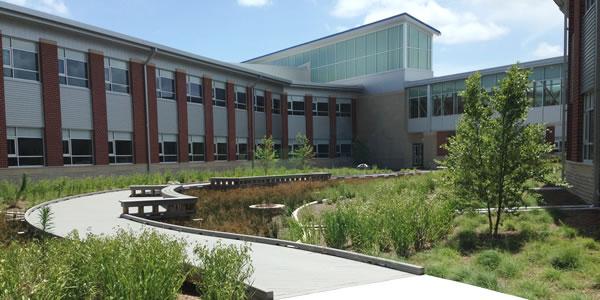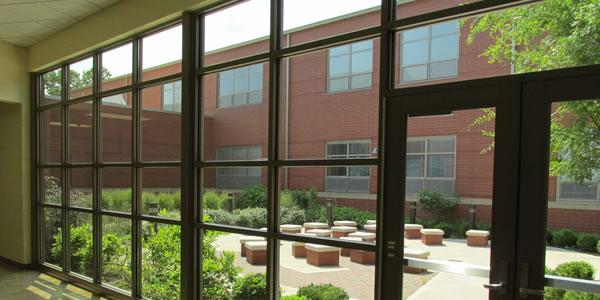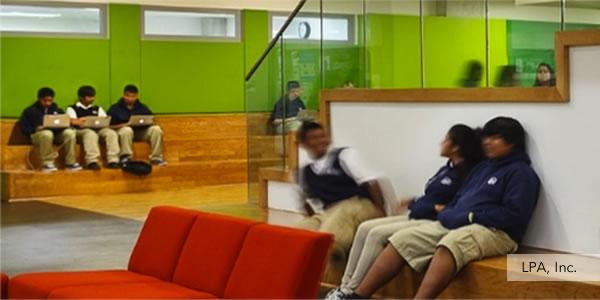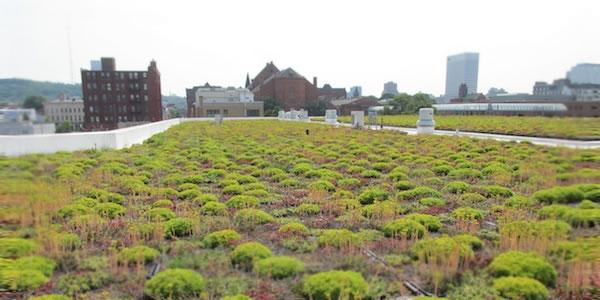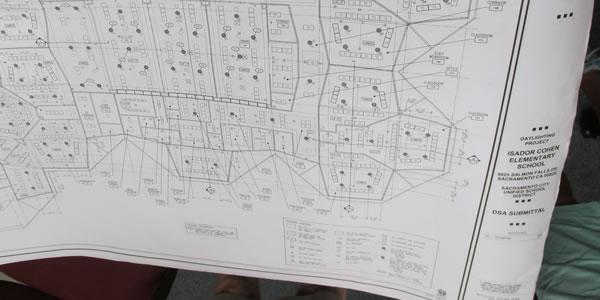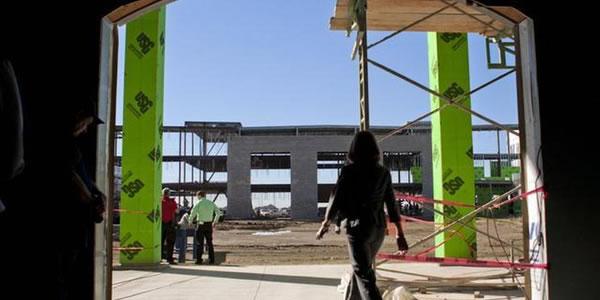Mission Statement
The National Center for the Twenty-first Century Schoolhouse supports the planning, design, and construction of learner-centered school facilities through communication, research, and training.
News
NC21 and Partners Kick Off California's Coalition for Adequate School Housing (C.A.S.H.) Spring 2015 NextGen Symposium
Cynthia L. Uline, Director of the National Center for the 21st Century Schoolhouse, joined Dr. Helen V. Griffith, Executive Director of e3 Civic High and educational facilities experts Kate Mraw and Dr. Julie Z. Cramer to kick off the California's Coalition for Adequate School Housing (C.A.S.H.) Spring 2015 NextGen Symposium. Kate Mraw is LPA's Interior Design Director and member of the team who designed e3. Dr. Julie Z. Cramer, Deputy Director of University of San Diego's Institute for Entrepreneurship in Education, worked with a host of partners to develop the original charter for e3 Civic High, a 21st Century learning environment co-located in the new Central Library, downtown San Diego. Together, they told the story of their two-year study of Pedagogy-Environment Fit, exploring occupant experiences at e3 to better understand the way in which various intentionally designed elements of the school were functioning in support of the project based, technology enhanced, community-embedded curriculum. The Coalition for Adequate School Housing (C.A.S.H.) promotes, develops, and supports state and local funding for K-12 construction. School District members represent 93 percent of the pupils in California.
USGBC's Center for Green School's National Action Plan for Education for Sustainability
NC21 joined with Auburn University's Associate Professor of Educational Leadership, Lisa Kensler, to co-author the Leadership Chapter of The National Action Plan for Education for Sustainability. The Center for Green Schools convened leading minds and strong champions of Education for Sustainability, who together commit to a series of actions that seek to ensure all PK-12 US students graduate equipped to shape a more sustainable future by 2040. The authors intend to deepens understanding of Education for Sustainability and how it enhances learning; share best practices from across the country; and assist readers in identifying their own roles in advancing sustainability learning in K12 classrooms nationwide.
Advanced Certificate Program Transitions to the Advanced Academy for Learning Spaces
In order to provide extended opportunities for communication and learning between and among key educational facility professionals, in 2006, the Council of Educational Facility Planners International (CEFPI) and San Diego State University's National Center for the 21st Century Schoolhouse partnered to develop and deliver a fully accredited Advanced Certificate Program in Educational Facility Planning. Over seven years, the program graduated 94 students, representing 34 states and 5 countries. These students learned from some of the most experienced practitioners in the field how to plan, design, build, and maintain 21st century, learner-centered school facilities. At the same time, they interact with, and learn from, a select group of educational facility professionals from around the globe. This fully online program focused squarely on the student, beginning with a course on learner needs and styles and culminating in a course on life cycle facility assessment. The 12-credit certificate program earned participants 12 units of graduate credit. In Fall 2014, the Advanced Certificate Program transitioned to the Advanced Academy for Learning Spaces, now offered as a professional development program under the direction of CEFPI. Following the tradition of excellence, courses continue to be developed and delivered by SDSU's Center for Distance Learning. The first Academy cohort will graduate June 2015.
Lt. Governor of Oklahoma Appoints an Advanced Certificate Program Graduate
Gary Armbruster, cohort 4 Advanced Certificate Program Graduate, was recently appointed by the Lt. Governor of Oklahoma to be on the Oklahoma School Security Commission. According to Gary: I feel that one of the reasons was because of my CEFP designation, a positive benefit for the designation and for going through the SDSU program.
